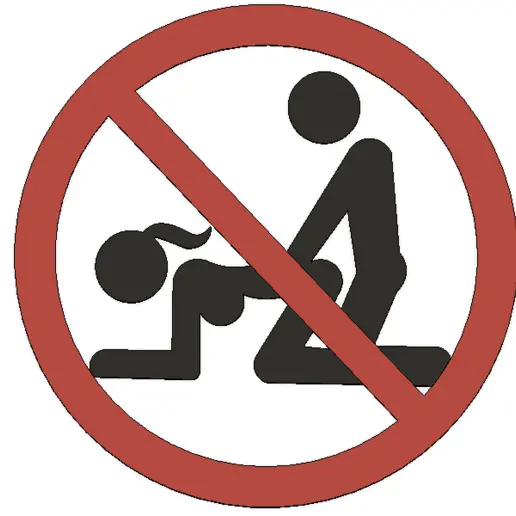A CONTROVERSIAL VOTERS REGISTER: THE WAY FORWARD?
Free, fair and credible elections observed in international democracies have been basically influenced by electoral rolls that have the trust of voters and political parties as stakeholders. Ghana in her 4th republic has so far seen seven general elections which have produced three different transitions. In spite of extensive national conversations and strong oppositions that characterise decisions and reforms that the Electoral Commission (EC) – an independent body established under article 43 of the 1992 constitution has made over the years, elections are still organised. It is unfortunate that the quest of the body to remain transparent at all times and for that, matter the formation of an Inter Party Advisory Committee (IPAC) has literally been abused by its members.

Parliamentary elections on December 7th, 2020. Following this electioneering development, the nation’s political space appears to have heated, not necessarily in consequent to the usual political campaigns and debates on party manifestoes but as a result of the EC’s advances to compile a new voters register for the impending elections and beyond.
The National Democratic Congress (NDC), together with other parties have amalgamated to form what has been named Inter Party Resistance Against New Voters Register (IPRAN), with the National Chairman of the People’s National Convention (PNC) – Mr. Bernard Mornah serving as its lead Convener. The New Patriotic Party (NPP) on the other hand maintains that a new electoral roll will be requisite for a free and fair “Election 2020”, citing that has been their position even prior to ”Election 2016”´, which saw its then Candidate; Nana Akuffo-Addo winning by a nearly 6 million votes out of total valid votes cast. It has also debunked allegation that they (NPP) are in cohort with the EC to rig the December polls. The elephant family have stated emphatically, with one being a recent press confab by Peter Mac Manu – Campaign Manager and former National Chairman of the NPP that “it does not need the EC to win the forthcoming elections.”
AN NDC DISTRUST; ITS SOURCE.
On 28th June, 2018, Ghana’s first female EC Boss who was appointed by President Mahama upon Dr. Kojo Afari Gyan’s retirement; Madam Charlotte Osei together with her two Deputies were sacked by President Akufo-Addo through his executive powers following what was termed as “procurement breaches”, hence necessitating that action. It is this move that I believe has been a torn in the flesh of the NDC. The party continues to hardly succumb to the “excuse” that prompted the now UN Election Observer’s removal from office. The NDC have always stood by their stance that her impeachment was politically motivated and an accomplished witch hunt by the NPP government.


This has undoubtedly resulted to a distrust of the NDC towards the EC. The NDC believes that the appointment of a new set of EC leaders is motivated by a sinister plot that the NPP seeks to carry out.
“This woman has, over the years demonstrated that she is totally against the NDC, and we the NDC have indicated publicly the issues she has against us, and so, her appointment as EC Chair is worrying, she will work against the NDC and that is what President Akufo-Addo wants ahead of the elections” – Johnson Asiedu Nketia ( NDC General Secretary)
One of EC’s Deputy Chairs; Dr. Bossman Asare was subject to a “Socialist” scrutiny by Lawyer Sammy Gyamfi’s team where his credibility was questioned following some comments he made about the leading opposition party. The academic turn commissioner’s word definitely came as a complement to arguments by NDC Communicators as they did not spare capitalizing on his level of neutrality.
“Bossman Asare is on record to have described the NDC as a threat to Ghana’s democracy. How can the NDC be reasonably expected to trust the neutrality of Bossman Asare in view of this fact? How can we trust Bossman to be a fair referee in the 2020 upcoming elections?” – Sammy Gyamfi (National Communications Director of the NDC)
Since the commencement of plans to get rid of a “bloated” voters register, the NDC has made clarion calls and reacted with a never-ending opposition but their calls have remained futile. Their collaboration with IPRAN, which has staged a number of demonstrations in some parts of the country and their intermittent boycott of IPAC meetings have not in any way signaled any form of remorse from the Electoral Commission towards them.

THE NDC CASE, MY OPINION.
The umbrella party fails to understand the following:
1.That one the main reasons for a new voters register is to introduce a facial recognition technology, which will complement biometric and manual verification during elections.
2.That the already existing voters register has flaws and for that matter demands a total abortion for a new one.
3.That a 56 million Ghana cedis budgetary allocation has been made to replace a “flawless” voters register.
4.That only the Ghana card and passport would be accepted as legitimate documents to prove ones citizenry during the registration activity.
5.That a mass registration exercise will be conducted at a time where the country battles a COVID-19 pandemic.
The NDC must know that the decision to compile a new voters register is in fulfillment to the 2012 election petition hearing and a subsequent Abu-Ramadan suit which’s orders discredited the use of NHIS cards in the registration process and a compilation of a credible new voters register respectively.
What is more, Eventhough the reasons given by the EC are justifiable enough to encourage all stakeholders to support its course, I strongly stand by the view that the following reasons should amount to a review or suspension of the registration exercise.
1.The National Identification Authority’s registration for the Ghana card has not been reliable and effective enough. Barely half of qualified voters could acquire their cards. The NIA has not yet opened district/regional offices like the National Health Insurance Authority which gives room for Ghanaians to walk in at any point in time to have their identities captured in the national system. The strategy of rotation on regional basis that it adopted during the registration process has not been the best as it was met with a series of irregularities, derailing a larger portion of Ghanaians from acquiring their cards. On the issue of passports, we all bear witness that on a rough scale of 1-10, a sum of not more that 2 of the Ghanaian population own a passport. The big case is where the birth certificate; a document which guarantees one’s right to own a passport won’t be accepted as a primary source to equally guarantee one’s constitutional right to own the new voters ID card.
2. At a time where humanity globally battles SARS-COV-2 and the need to adhere to safety protocols outlined by the World Health Organisation and our very own Ghana Health Service, a voters registration which promises a non-compliance to these precautionary measures must not be encouraged. The EC has mentioned that it will observe the following protocols at all registration centers – Mandatory wearing of face masks at registration centers, Checking of body temperature, Provision of running water for hand washing, One- meter gap queues between persons lined up, Sanitization of scanners and Provision of hand sanitizers to all persons.
On the more serious note, these risk minimization measures will hardly be rolled out as planned in the Ghana I know. They look good on paper and appear commendable but their practicality portend unachievable.
If care is not taken, this exercise will fuel an escalation of the novel virus which has already been contracted by some 7,303 Ghanaians as at Thursday, 28th May, 2020. Evident to this is when Ghanaians descended on the NIA when the Manyo-Krobo Area of the Eastern Region became a hotspot of the viral disease where the cause was attributed to refusal of the authority to halt their exercise in the District when the country had started recording cases. It is believed that the exercise served as a breeding grounds for transmission.
Albeit the sound justifications of the need for a new electoral role, there is a need prioritize the health and safety of Ghanaians over electoral activities. Our international recognition as one of the best case managers of COVID-19 may be lost just like how Sekondi-Takoradi has now lost its reputation as one of the best cities in the country where safety protocols are respected.
THE VOTER APATHY PROJECTION.
Irrespective of the fact that some interest groups have declared their support for the new register, some Ghanaians lament on the threat the exercise poses to their health and safety. This, for that matter will demotivate a larger population of Ghanaians from partaking in the exercise.
Also, should Ghana’s COVID-19 situation not improve as at December 7th, many voters will be discouraged from trooping to polling stations to exercise their constitutional right and obligation.
Already, some Ghanaians, due to different reasons have lost confidence in the Ghanaian politician and for that matter, governments (both past and present).
These compatriots have vowed never to “waste their time” during elections.

People who fall in this category may be compelled to register for the new card when the activity begins not necessarily because of December 7th but due to its demand as a credential before services- business, etc. are rendered on a daily basis.
In effect, election 2020 may see a very low turnout in the history of Ghana if these issues are not addressed.
AVOIDING A CONSTITUTIONAL CRISIS.
I am of the view that, instead of risking to invest all resources in conducting a voters registration exercise which projects shaky consequences in this time of International Public Health Emergency as declared by the WHO, a legal problem should be addressed. Ghana’s 1992 Constitution does not define how governance in the nation will be in case of our inability to conduct general elections due to emergencies of this sort.
Knowing what an inability to conduct “Election 2020” will mean to our democracy, an all-inclusive discourse by the Executive, Parliament and Judiciary organs of government should commence to address this lap as quickly as possible.
Perhaps, we could take advantage of the situation to extend presidential and parliamentary tenure of offices from the usual 4-year term to a 5-year term. This will mean Election 2020 will be postponed to 2021- an opinion that a number of institutions have expressed over the years.
This historical move would not only profit our democracy in the long term but also augment a successful and peaceful electioneering season, come 2021 as all political divides will experience a campaign train devoid of restrictions and other associated cons that come with it.
Once again, instead of thinking about general elections at a time where there is a pandemic, let us shift the focus to addressing the lap in article 66 which poses a threat to the political stability Ghana has seen over the years.
Emmanuel Swanzy-Baffoe.
Political Analyst | Writer | Debater | Activist.
Telephone: (+233) 50 615 0791.
Facebook: Emmanuel Swanzy-Baffoe.
Twitter: Emmanuel Swanzy-Baffoe.
Email:emmlswanzybaffoe00@gmail.com.
















